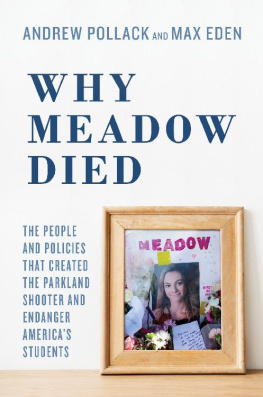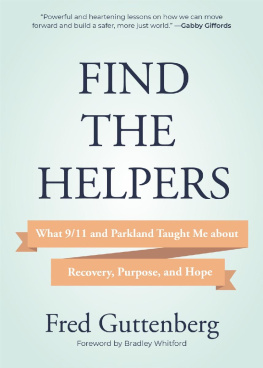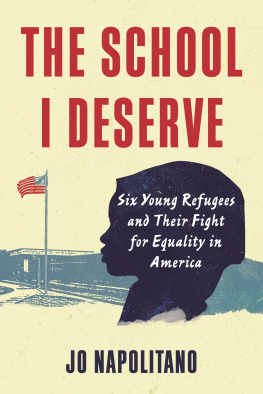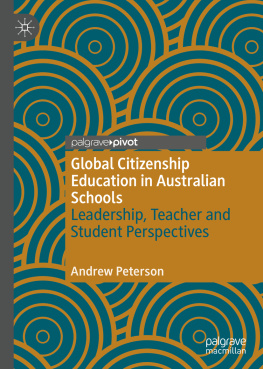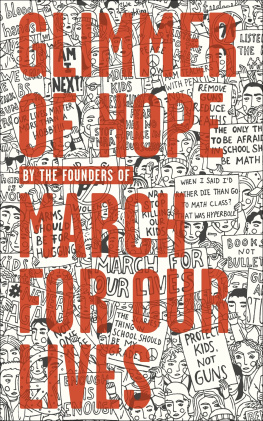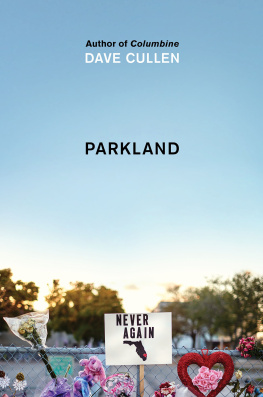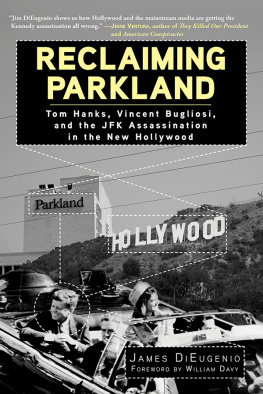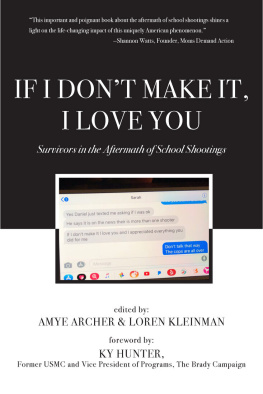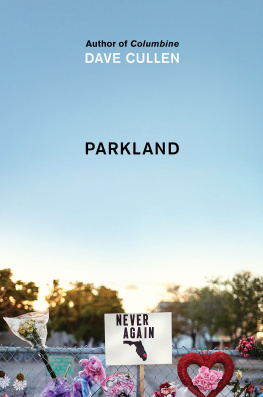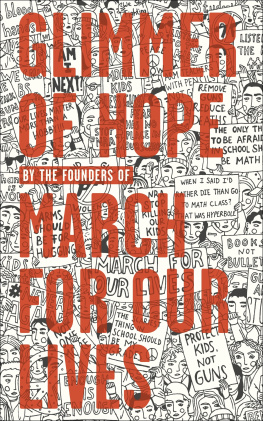
CHAPTER 3
An Education Expert
By Max Eden
F our days after the shooting, an article in the Washington Post exonerated the Broward school district: Instead of slipping through the cracks, it appears Nikolas Cruz was the target of aggressive work to help put him on the right track. The Post noted that Broward was a leader in the national move toward a different kind of disciplineone that would not just punish students, but also would help them address the root causes of their misbehavior. The Post reporters wrote that the school district might have hit the limit of what could be done to help 181958.
However, when Alexander Russo, an education journalist for Kappan magazine, read the Post article, he drew a fundamentally different conclusion. He tweeted, This piece makes Max Edens argument.
As a senior fellow at the Manhattan Institute for Policy Research, I had regrettably determined that, in education, the truth is often the opposite of what gets reported. Shortly before the shooting, I had written a series of articles about the disastrous effects of education reform in Washington, D.C. schools. What I saw unfold there had convinced me that the leaders of a movement that purported to put students first were far more concerned about their reputations within an elite bubble than about what actually happens to students in schools.
Educations Social Justice Industrial Complex
In 2016, the Washington Post Editorial Board described the District of Columbia Public Schools (DCPS) as the fastest improving urban school district in the country.
This idea gained substantial bipartisan support but was derided by some progressive critics as the corporate reform agenda. Test scores had increased, suspensions had plummeted, and graduation rates had soared.
There was only one problem: the numbers were not real.
In 2017, I discovered that the test score gains were essentially a product of gentrification.
And, as the Post eventually uncovered, the decrease in suspensions was also entirely fraudulent. It was a systematic con job from the top down.
The most amazing thing was that, when these misdeeds came to light, no one who had promoted these policies seemed to care. After the news broke that DCPSs graduation rate increase was entirely fraudulent, the CEO of Teach Plus continued to laud the districts graduation rate as proof of the success of the movement. Months after it came out that DCPS had lowered suspensions by refusing to record them, the Center for American Progress invited DCPSs chief of equity to an event to highlight the districts success in lowering suspensions.
Watching the flagship of the education reform movement sink, and no one seeming to care, made a profound impression on me. I realized that in this new era of corporate education policy, the only stakeholders who mattered were the outside activist groups. There were two ways to make a reputation within this billionaire-funded, progressive bubble: fake the numbers or compete for the status of most woke at education reform conferences.
At one such conference, held by the Standards Institute in 2018, the CEO of UnboundEd received applause for telling the audience, If you are under the impression that there are good white people and bad white people, youre wrong. The speaker exhorted the audience to recognize that they were part of a systematically racist system of education and that the mission of education reform was to disrupt patterns of implicit bias, privilege, and racism in ourselves and in the education field.
A decade earlier, education reformers had viewed the racial achievement gap as evidence of serious societal problems that their policy ideas could ameliorate. But as their prescriptions failed, their diagnosis shifted: all racial gaps were now evidence of institutional racism in schools and implicit bias from teachers.
The education reform movements new goal was to fix the problem of biased teachers. This was a fraught mission for education reformers, who believed that they were, according to a much-lauded internal review of the movement conducted by Promise54, tainted by a white dominant culture and its systems, structures, stories, rituals, and behaviors.
Yet somehow, they convinced themselvesand more importantly, their fundersthat with they could fix the problem of racially biased teachers once and for all. And, naturally, anyone who questioned them or their policies mustwhether that person realized it or notbe motivated by racial bias.
The term corporate reformers no longer seemed adequate to describe what this movement had become. A social justice industrial complex had taken hold of American education. Former Secretary of Education Arne Duncan, impressed by DCPSs apparent gains, used money from the 2009 stimulus bill to incentivize (some might say bribe) states to follow DCPSs policy lead on test-based teacher evaluations and the new (and much-hated) Common Core academic standards. With those policy levers and incentives in place, and with ever more money flowing to woke conferences and training programs, school district leaders across the country have learned that the fastest path to career advancement is to fake statistical progress for minority students while passionately decrying privilege and institutional racism.
What Role Did Policy Play?
If Washington, D.C. was the flagship of the education reform movement writ large, Broward County was the standard-bearer for the new approach to school discipline: an aggressive push for leniency on the grounds that racially biased teachers were unfairly punishing minority students. This issue was personal for me because of my moms experience at an inner-city school in Cleveland, Ohio.
My moms first dozen years as a middle school teacher were great. Her students loved her, and the principal always had her back when one of them misbehaved. But in 2014, a new principal was hired as the school district was in the midst of a major shift in its approach to school discipline. Principals increasingly felt pressured to reduce not only the number of suspensions but also the number of times students were sent to the office. My moms new principal told teachers that she didnt want students sent to her office unless theyd been violent.
The kids quickly realized that the rules had changed, that they could get away with almost anything, and that there was nothing Mrs. Eden could do about it. My mom lost control of her classroom, and she eventually decided to leave the Cleveland Metropolitan School District and become a substitute teacher in the suburbs. Today, shes doing just fine and enjoying her work. In the end, it was my moms students who were hurt. They learned that they could be disrespectful and disruptive without consequence, and they were ultimately deprived of my mom and other great teachers who left for the same reason.
The more I researched, the more I found that my moms story was far from unique. Shortly after Runcie launched the PROMISE program, Duncan issued a federal Dear Colleague Letter to pressure school districts to follow Runcies lead. (More about that in chapter 9.) School administrators across the country were pressured to reduce their discipline numbers and generally reacted in one of two ways: by not enforcing the rules or not recording it when they did. After reading the Post article, I couldnt help but wonder whether this dynamic had played a role in the shooting. If the shooter had committed the crimes his classmates alleged, did school administrators forfeit opportunities to have him arrested, which could have prevented him from legally buying a gun?
I was not the first person to pose this question. CNNs Jake Tapper asked it almost two weeks after the shooting in a hard-hitting interview with Broward County Sheriff Scott Israel.
Next page
